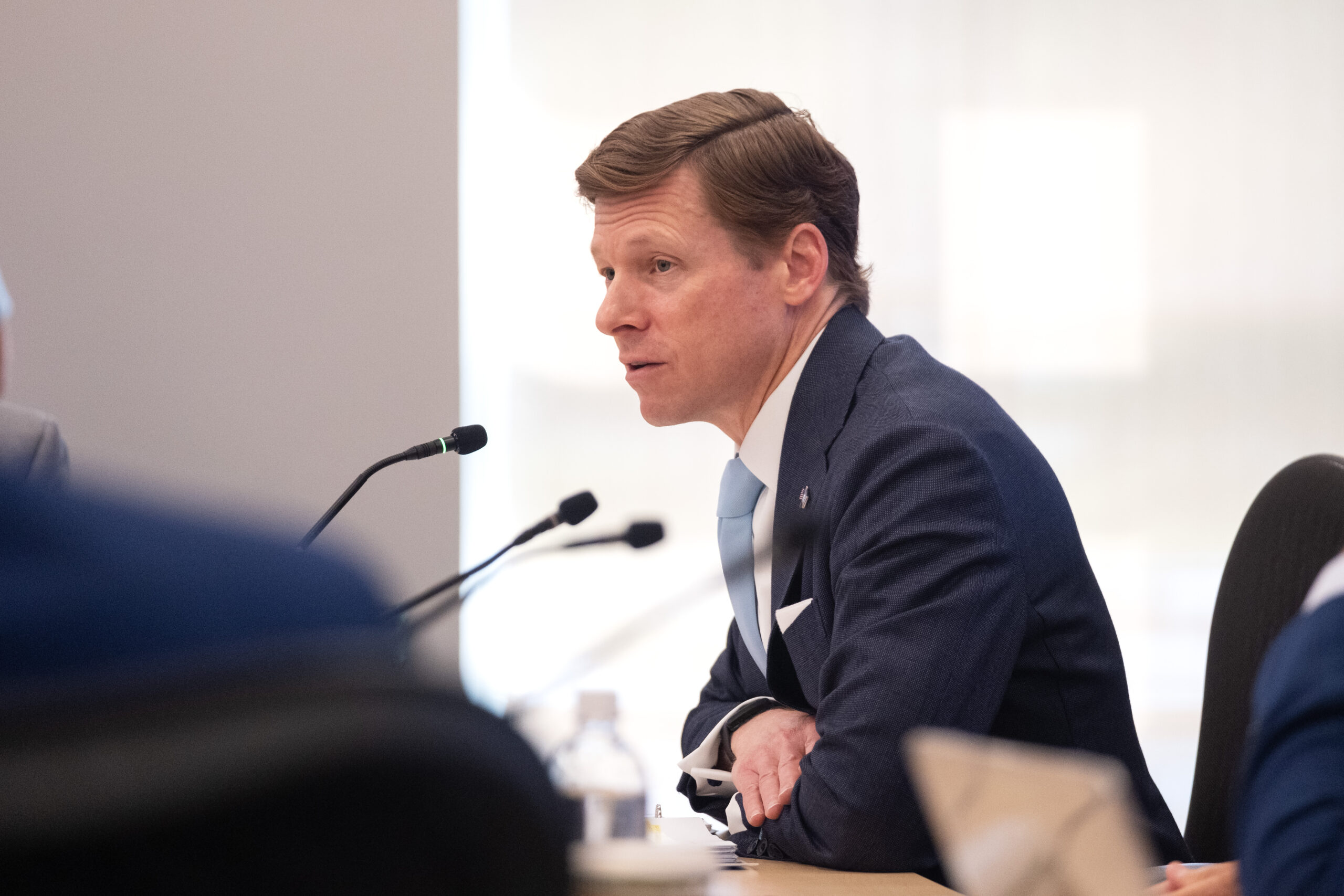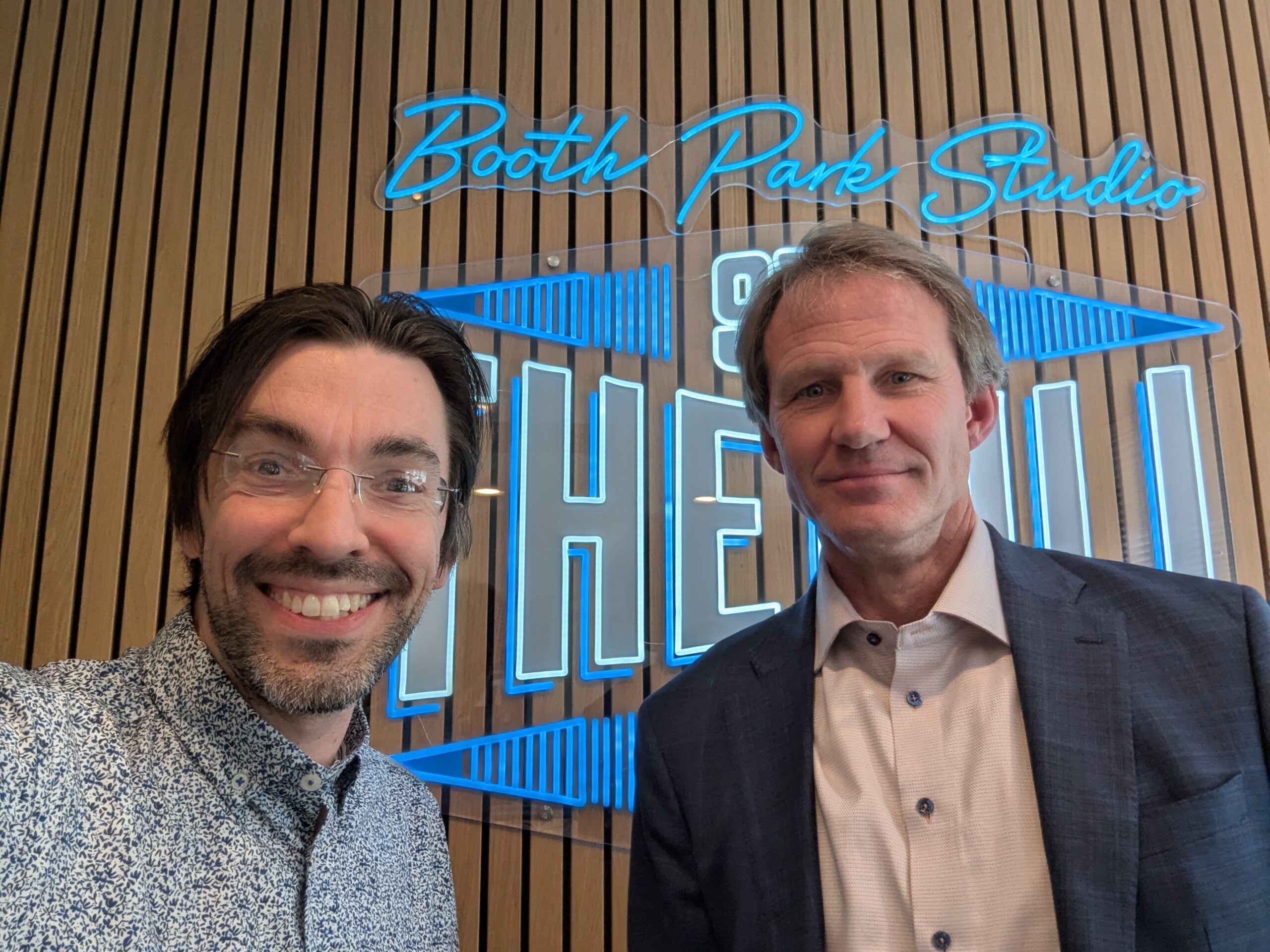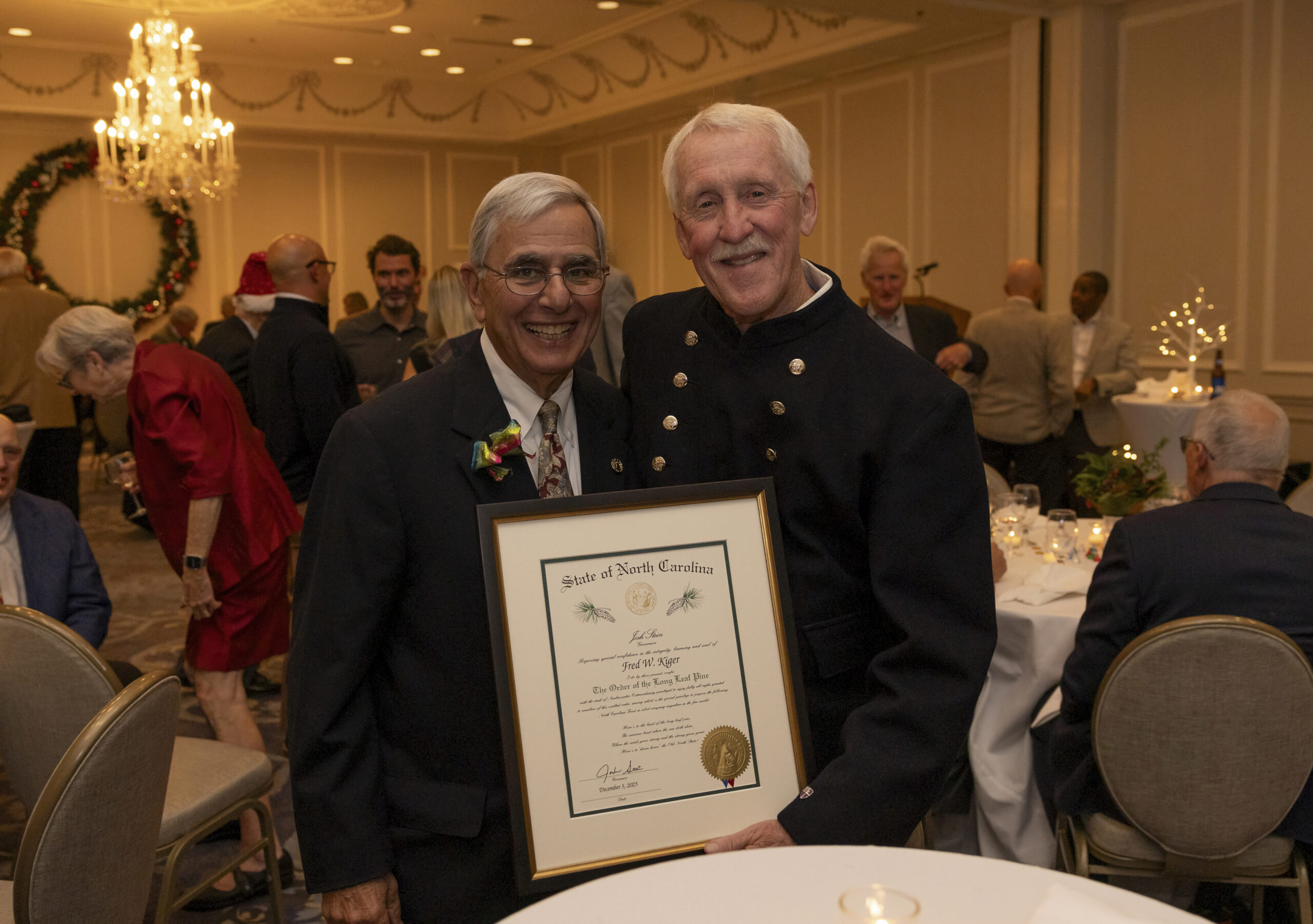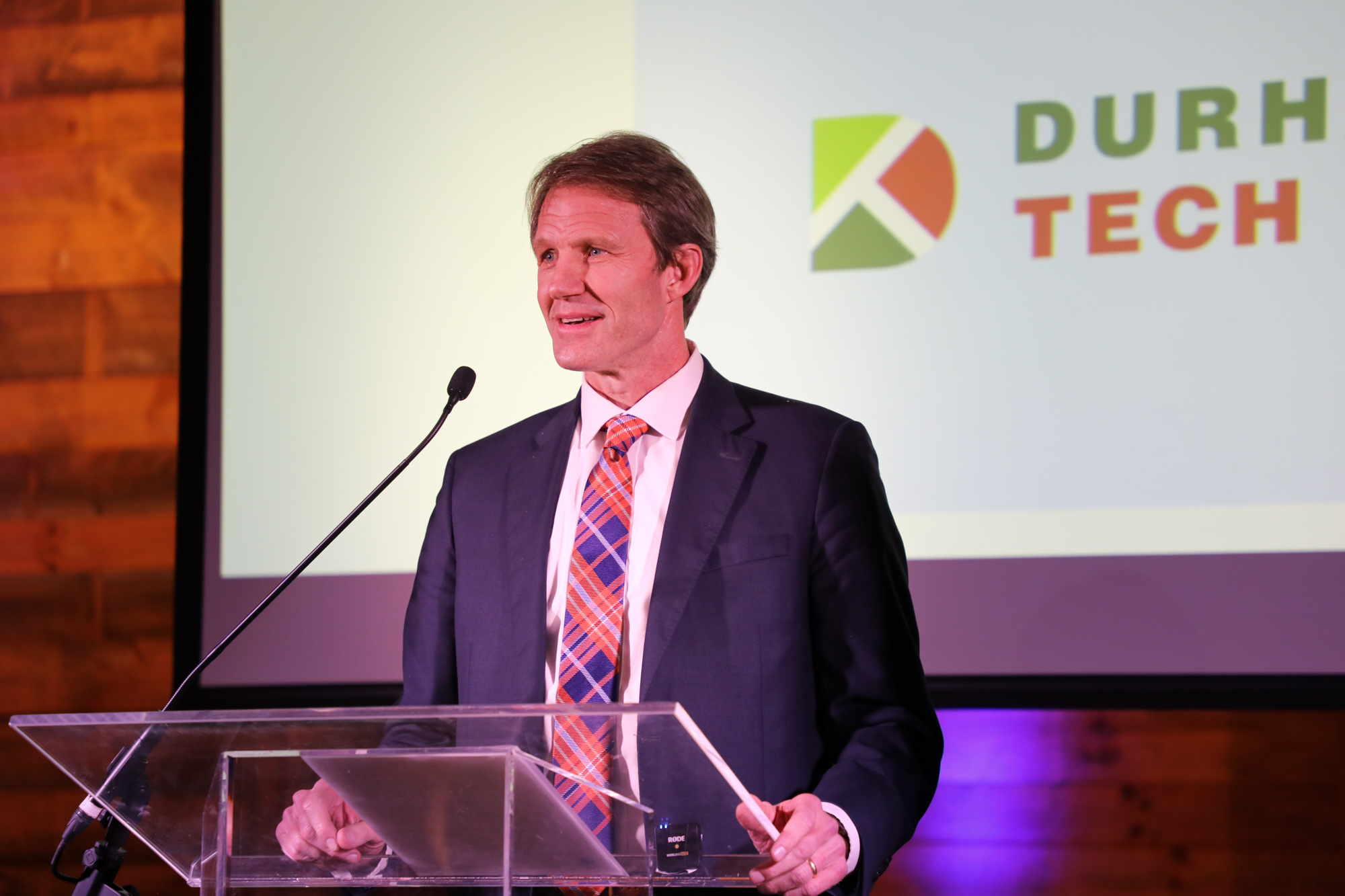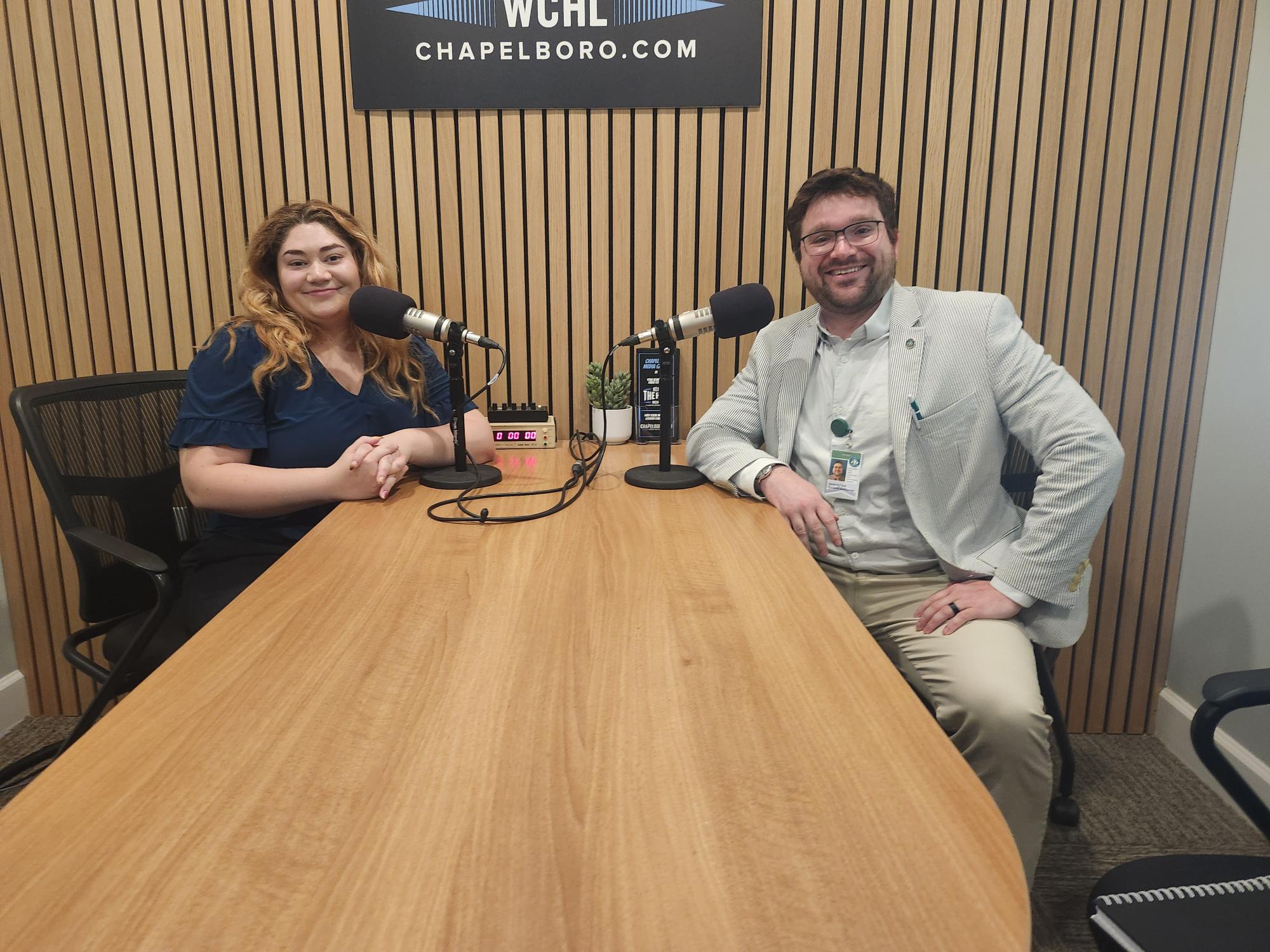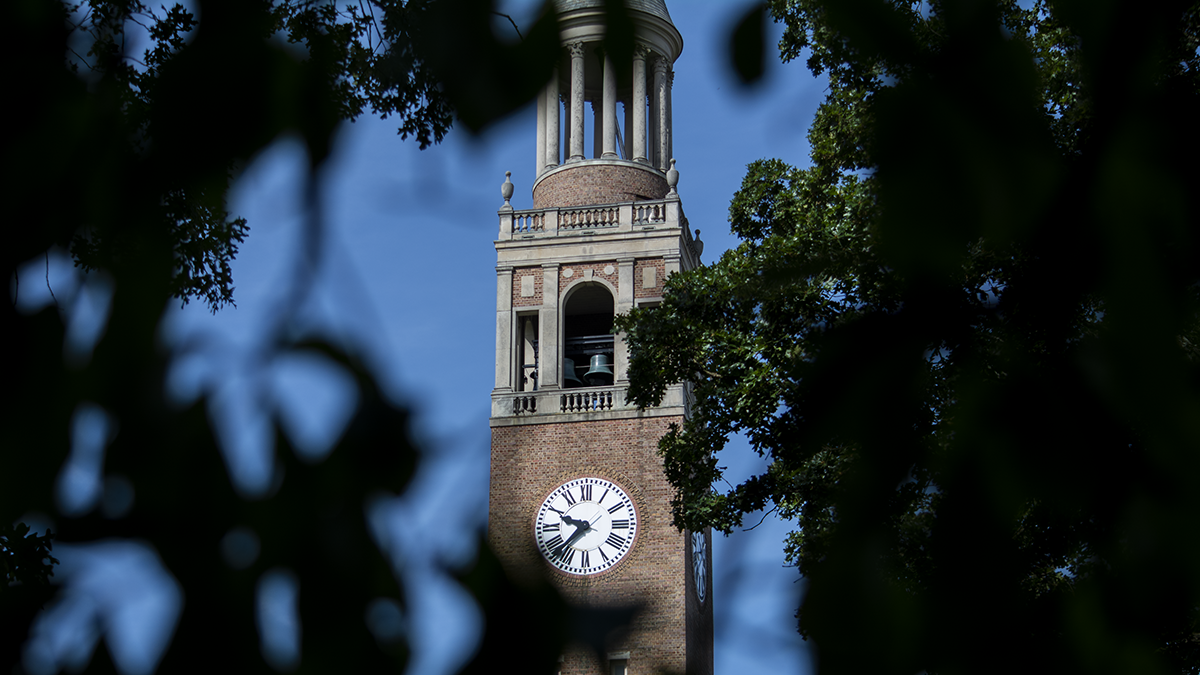In western North Carolina, recovery continues from the devastation of last fall’s Hurricane Helene. Here in Chapel Hill, UNC officials are working to harness the university’s resources to help. That includes the Carolina Across 100 initiative, which has spent the last few years working on critical issues statewide, from housing to jobs to mental health. The UNC professor leading that program, Anita Brown-Graham, recently returned from a “listening tour” out west — and she spoke with 97.9 The Hill’s Aaron Keck about what she saw and the initiative’s strategies for providing assistance.
Below is a transcript of their conversation, which has been lightly edited for clarity. Listen to the full on-air interview here.
Aaron Keck: Let’s start by talking about the impetus for the trip in general. What motivated it?
Anita Brown-Graham: Carolina Across 100, by definition and reflected in the name, is our opportunity to connect with each of North Carolina’s 100 counties. Over the last four years, we’ve had the opportunity to be in deep partnership with a number of counties in the west, and after Hurricane Helene, it made sense for us to go out and talk to our partners and to understand better how this unbelievable natural disaster had affected the work they were doing on educational attainment, on employment, and on housing and mental health. So that, that, that’s why we went.
Keck: What did you see?
Brown-Graham: You know, I’ve actually had the opportunity to work on a number of relief and recovery efforts in North Carolina over the past three decades. This one was different, in part because it wasn’t as localized as most [natural disasters]. You literally could be in the same town and go through an area that seemingly was unaffected by the hurricane, and three minutes later there’s absolute devastation. Which is difficult, then, for the community to figure out how to come together. One of the conversations we heard is for the places that were not affected, the need to continue to have their tourism industry supported was critical. And yet, other places were saying, “No, no, don’t come. We actually cannot figure out how to accommodate tourists.” That in and of itself, I think, just flavored the conversations in a different way. And there were some things that were the same… after every natural disaster, one of the things people point to is how communities come together. This was no exception. We spent so much time hearing about neighbors helping other neighbors, that in many ways it felt like the best of humanity.
Keck: Is there an example of that that you can remember?
Brown-Graham: Absolutely. This may not surprise those who know Western North Carolina well, but we did a couple of service projects while we were there. One was in Henderson County, and people talked about how hard it was to get individuals and families to take advantage of resources because the mantra was, “I know someone who needs this more than I do. Let me take it to them.” We heard the same thing in West Jefferson: “Let me ensure that somebody who’s worse off than I am, than my family is, has this opportunity for these resources.” And, you know, I keep saying to people…I felt all the feels while I was there. Both sadness and inspiration, happiness and anger…everything.
Keck: Carolina Across 100 has a couple of programs that are going on across the state, including things that you would expect to be directly impacted in a very big way by Hurricane Helene [like] housing and mental health. How are those programs affected and how are people affected that way?
Brown-Graham: Obviously some of the challenge, particularly in the early days, was the inability to communicate with people [and it] caused us to just have to pause a lot of the work in the immediate aftermath. The hardest stuff to wrestle with is where we are right now. You can well imagine in Western North Carolina, where housing was already a challenge… there’s limited land to build on, it’s expensive to build on given the terrain, there are few construction companies. I mean, it’s all these things. Then, to lose 7,000 units of housing — particularly affordable housing — it will be a while before the region is able to build that back. But I worry less about the physical infrastructure, quite frankly, than I do about mental health. What we’ve heard is they expect the crisis not to be in the immediate aftermath, or even back in February [when we were there.] It’s probably going to come six months to eight months after September 24, when people sit back and are really able to process the sense of loss. And as a state, we need to be prepared for that.

A Madison County sheriff’s vehicle passes damaged buildings along Bridge Street in the aftermath of Hurricane Helene Tuesday, Oct. 1, 2024, in Hot Springs, N.C. (Photo via AP Photo/Jeff Roberson.)
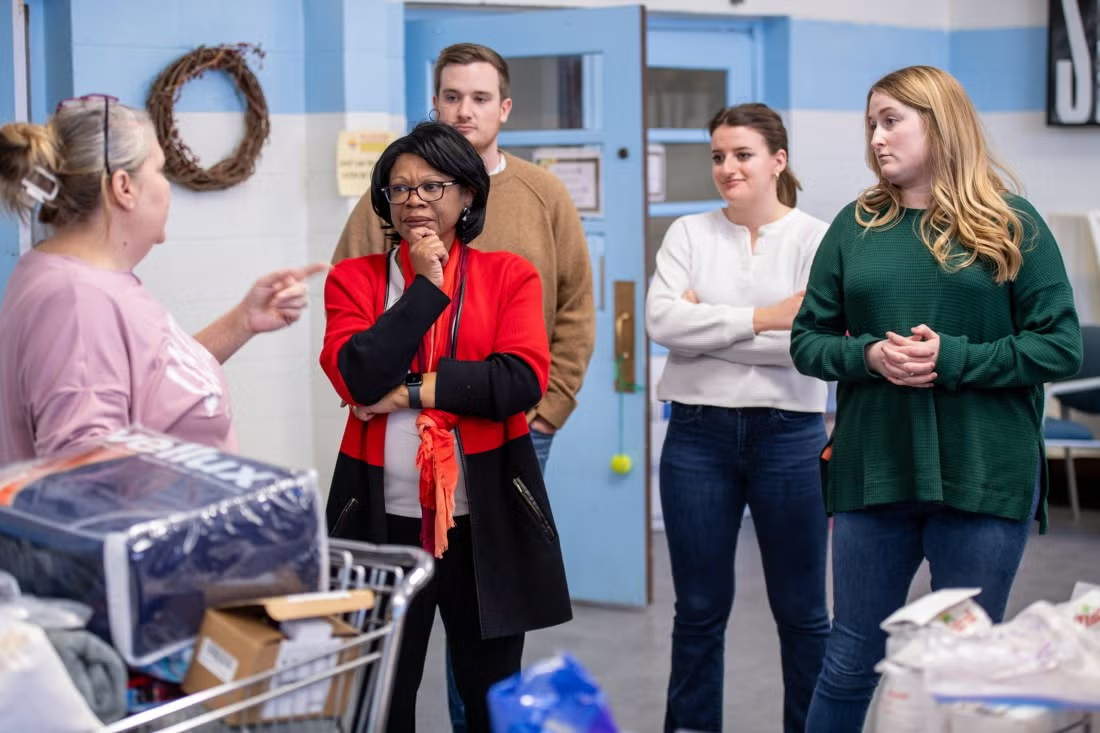
Anita Brown-Graham (center left) and other members of the ncIMPACT team visit a Waynesville community center acting as a Hurricane Helene resources hub during a listening tour in January. ncIMPACT is one of the groups helping run Carolina Across 100. (Photo via ncIMPACT.)
Keck: Beyond what UNC is already doing, how else can UNC harness its resources to help?
Brown-Graham: It’s a great question, and it’s one of the questions we asked the communities as we went through them. Here are the four things they said to us. The first is they are concerned about mental health and they want to make sure they have the resources in place to support — particularly [for] young people. Children, adolescents who have not gone through this kind of experience [before] but now know they have friends who have nowhere to live, maybe they themselves have nowhere to live. So, we’re trying to amass the resources to be able to support — even if it’s by telehealth — those young people.
Learning loss recovery was top of mind for everyone coming out of COVID. We were already at a deficit and this is not helping. So, we’ve got to figure out how to do some of that. They want [us] to think creatively about housing options, and we are working with five teams in the area to do just that. And then, finally, there was a lot of conversation about building up the resiliency of these communities — recognizing the need for redundancy, communication, transportation, and all the things you don’t worry about until you realize if that one road doesn’t exist, people can’t get in and they can’t get out. And so, we are also working on that with communities.
Keck: And that’s going to be difficult in some communities because the reason there was only the one road in the first place was because it was so hard to build any others. And now that one is hard to rebuild!
Brown-Graham: That’s exactly right. And it’s not an inexpensive proposition, so I don’t want to suggest it’s about just [building] three other roads — but we’ve got to figure [it] out, given what we can all expect in terms of natural disasters coming in the future. [It’s about] how we protect communities so that we don’t have the crisis that we had immediately following Helene.
Keck: From what you saw, if just ordinary people want to help out individually, what’s the biggest need? What can people do now?
Brown-Graham: Yeah, things have changed. There was a time when it was ‘send diapers’ or ‘send water’ or ‘send coats.’ I think right now, the way to do the work — and it’s certainly the way we did it — is connect with local organizations in specific places and ask them what they need. The needs are different across the region, but there’s no way to meet them unless you’re talking to people who are in the region.
Keck: I do remember the week after [the storm happened] and the devastation became apparent, I went to Target to try to just pick up supplies. And it was difficult because the shelves were empty because people already [had bought and donated supplies.] And it was at a time of real devastation when there was a lot of pain. It was a moment of that little bit of joy [over] people were willing to step up for each other. It was nice to see in that one moment, at least.
Brown-Graham: I loved hearing people in the region say, “We could not have made it through this without our neighbors all across North Carolina and quite frankly, all across the country.” There was such a sense of appreciation for people who may not have had any connection to anyone in the region stepping up and sharing resources to make sure that people had what they needed to make it through those first days. I think I would do a disservice to this visit if I didn’t say there’s a little bit of worry…that as time goes by, the rest of the state and the rest of the country will forget about the devastation in western North Carolina and the reality that it’s going to take years to recover. And so if there’s one message I could leave you and your audience with it is: let’s not forget our neighbors in western North Carolina.
Featured photo via Johnny Andrews/UNC-Chapel Hill.
Chapelboro.com does not charge subscription fees, and you can directly support our efforts in local journalism here. Want more of what you see on Chapelboro? Let us bring free local news and community information to you by signing up for our newsletter.


